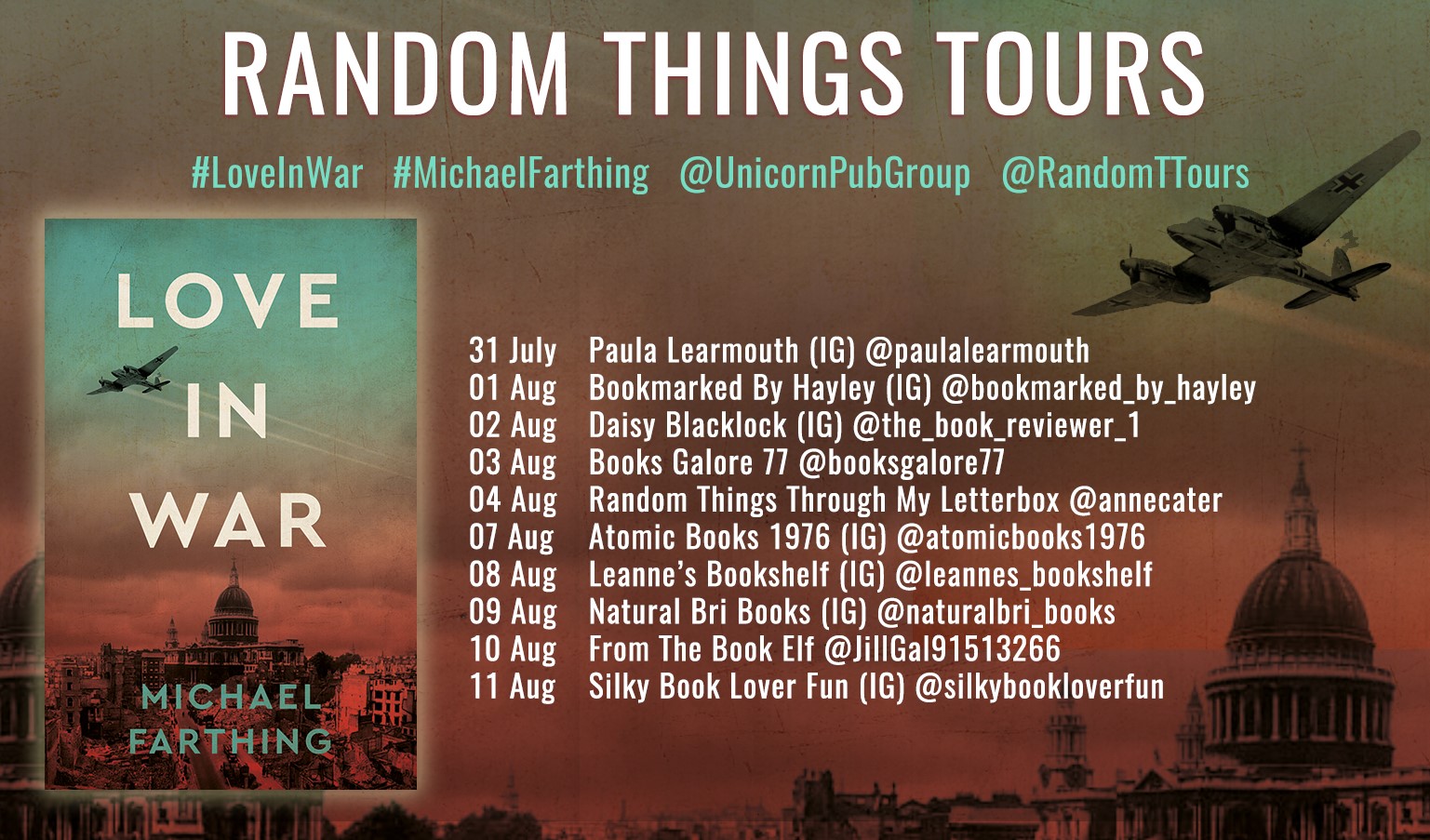Love in War is a love story of its time. Joanna and Johnnie were born in South London in the shadow of the Great War and were still growing up when the narrative begins in 1936 during Hitler’s rise in Nazi Germany. It ends ten years later in 1946, when Johnnie is demobilised.
Despite the committed intensity of the five-year relationship, they spent only forty-nine days together. Thus, Love in War is more about managing life apart than being together. The story moves between London and Berlin (where Joanna visits in 1938 and her dear schoolfriend, Ursula lives out the war) and the horrific theatres of war in North Africa and Southern Italy, which have disastrous effects on Johnnie and render him almost unrecognisable on his return to England after the war.
As the story closes, it is evident that there are no winners, just losers. Perhaps it is love that emerges as the only victor. The future is uncertain for all concerned. They have almost nothing to show for the last five years; just time lost. There remains a rather modest ray of hope – as Johnnie says at the end, ‘but we are alive.’
Love In War by Michael Farthing was published on 10 July 2023 by Affable Press / Unicorn Publishing. As part of this #RandomThingsTours Blog Tour, I am delighted to share an extract from the book with you today.
Extract from Love In War by Michael Farthing
PROLOGUE
LONDON, 4 MARCH 1946
‘Could this be the new beginning? The spring that brings new life? A re-awakening?’
Joanna was lost in thought as she sauntered along a sandy path which led to the entrance of an imperious, early Victorian building. It had a foreboding arched entrance, heavy dark oak doors, above which was a red tiled roof with spiky gables pointing skywards. Despite being erected in the mid-19th century, she had detected that its style was mock Tudor, typical stone-dressed red brick, with towering, spiral brick chimneys. Everything about the place was odd, you might say daunting; but then it was an asylum. The Surrey County Lunatic Asylum. If you drop the word ‘lunatic’, then asylum is a good word. It can spell safety, shelter and protection, care, even peace. Her progress was interrupted. In the distance, she could just hear the screams and shouts of a woman in despair. She guessed, from one of the ward blocks. A patient, struggling to unchain and liberate her demons which had been with her lifelong and unlikely to let her go now. The Asylum was renowned for a heavy presence of long-stay patients, some remaining there for decades, often for ‘minor offences’ such as being a ‘slow learner’ or for a single uncontrolled outburst of aggressive behaviour. When she reached for the handle of one of the heavy oak double-doors and found them firmly locked, she turned and looked back down the path, straight as straight, aligned almost perfectly on an East–West trajectory. She took a few steps back, as if expecting the door to open imminently, but paused. As was her habit, she had arrived at least fifteen minutes ahead of schedule.
‘I suppose all the doors are locked in places like this,’ she thought, wondering how to fill the interlude. She became distracted by two men in hospital uniforms, starched white cotton jacket and trousers, which she had spotted in the middle distance propelling a trolley, one at each end, as elegantly as they could along a bumpy gravel path. There was no one lying on top of the trolley, but a crisp white sheet covered the body box below. She imagined it contained a recently departed on its final journey to the mortuary. The incongruous party disappeared into the mist which hung low over the path on which they travelled, unfurling across the orderly gardens and into the fields beyond. There was a farm behind hospital buildings which accounted for the sporadic bovine and porcine moans and grunts and their distinctive aromas. She had discovered that this farm had been a valuable source of decent quality food during the war and as important, it provided a therapeutic environment for the 2,000 or more inmates.
The early morning chill had begun to lift, and she became aware of what would turn into a daffodil-studded lawn, beautifully manicured but densely spiked with confident, slender, upright dark green leaves held firmly by their pale bases, which were beginning to feed the bulbs below. The remains of the glistening overnight frost lingered. The ground was still cold and hard after the sharp winter, but she pictured the host of golden daffodils that was soon to be. She remembered the letter that Johnnie had written from Italy a year or more previously. He had gained such strength from Wordsworth’s, Despondency Corrected.
Michael Farthing’s career has been as an academic physician in the UK and USA.
In addition he has conducted medical research in several low-income countries including India, Zambia, South Africa and Belize and has written many scientific papers and medical books.
Since leaving medicine, he has published a critique of Leonardo da Vinci’s anatomical drawings and a ‘memoire plus’, Finding India, which explored the emergence of modern, independent India tracked across the last fifty years through the eyes of a foreigner.
He is an Honorary Professor at University College London, an Emeritus Professor at the University of Sussex and lives between London and Sussex.


.png)

.png)

.jpg)
No comments:
Post a Comment